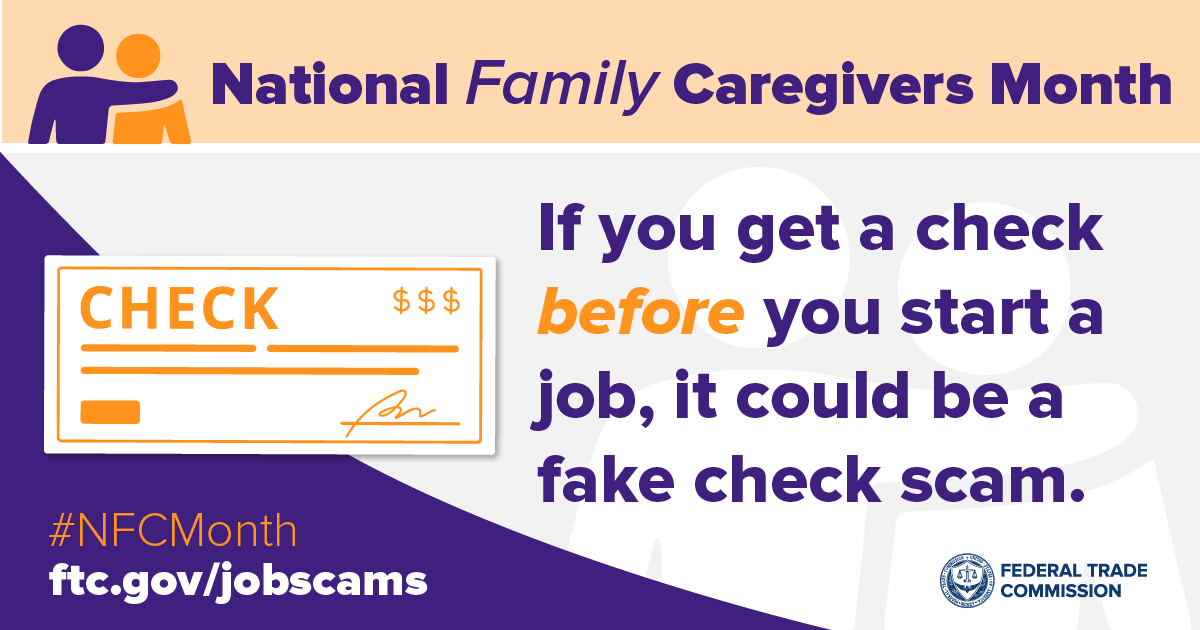 As we wrap up National Caregiver Month, the FTC wants to recognize all the incredible work that caregivers like you do every day. The work is seen and unseen and helps people in both physical and emotional ways.
As we wrap up National Caregiver Month, the FTC wants to recognize all the incredible work that caregivers like you do every day. The work is seen and unseen and helps people in both physical and emotional ways.
We know caregiving can be tough on your finances, too. So if you’re looking for a way to make extra money, searching online can be a good start. But scammers are there, too, and post fake job ads designed to trick you into sharing personal information or sending money in exchange for the promise of a job…that doesn’t exist.
Here are a few ways to spot and avoid job scams:
- Be suspicious if you’re offered a job without an interview. Scammers might say they’re out of town, too busy, or have another excuse for not talking to you by phone or in person.
- If you get a check before you start a job, it could be a scam. The person “hiring you” might say: it’s your first paycheck, to use the money to buy supplies, or — for caregivers hired online — that it’s for expenses related to caring for their loved one. But later they’ll tell you to send part of the money to someone else or return it to them. They’ll have excuses, but the main thing to know is this: the check is fake. By the time the bank realizes it, the scammer has your money (if you sent it), and the bank will want you to repay the money you withdrew.
- Check out potential employers before giving them any sensitive information. Search online for their name, email address, phone number, and even the text of the message they sent. You might find that others have had bad experiences and been scammed by the same people, or in a similar way.
Spot one of these scams? We want to hear about it. Report it at ReportFraud.ftc.gov.
